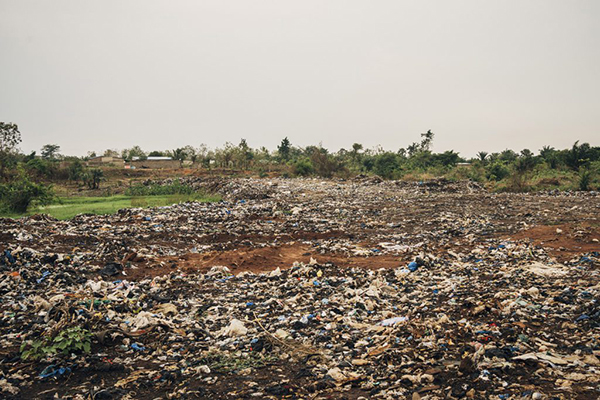Droughts, infectious diseases and hunger are growing worse in Africa due to the effects that climate change is having on the continent.
“The biggest polluters must pay more to get our planet out of the path of this climate crisis”. These are the words of Macky Sall, head of state of Senegal and current chairperson of the African Union (AU) in his speech today at COP27. Strong words that reflect a reality: Africa is the continent that produces the least greenhouse gases, some 3% of the total. But the climate crisis knows no borders. In Africa, climate change is already exacerbating malnutrition, disease transmission and forcing large-scale displacement.
COP27 is the fifth United Nations Framework Convention on Climate Change conference to be held in Africa since its inception in 1995. The need for developing countries to receive funding to address the ravages of the climate crisis was already raised in the 2015 Paris Agreement. Unfortunately, this support has yet to materialise.
Drought, famine and disease are worsening in Africa as a result of the climate crisis
It is ironic that COP27 is once again being held in Africa and commitments to the continent have not been met. According to an editorial published in The Lancet, Africa has suffered disproportionately from the climate crisis, although it has done little to cause it. Climate change-related risks on the continent include floods, droughts, heat waves, declining food production and reduced labour productivity. According to the editorial, which is supported by more than 250 medical journals (50 of them African), the consequences of climate change are alarming:
- Droughts in sub-Saharan Africa tripled from 1970-79 to 2010-19.
- In 2018, devastating cyclones affected between 2 an 2.5 million people in Malawi, Mozambique and Zimbabwe.
- In West and Central Africa, severe flooding caused mortality and forced migration due to loss of shelter, farmland and livestock.
- Changes in vector ecology caused by the floods and damage to environmental hygiene have led to a rise in disease across sub-Saharan Africa. The incidence of malaria, dengue fever, Lassa fever, Rift Valley fever, Lyme disease, Ebola virus disease, West Nile virus and other infections are on the rise.
- Rising sea levels reduce water quality, leading to waterborne diseases, including diarrhoeal diseases, a leading cause of mortality in Africa.
- Extreme weather conditions damage water and food supplies, which increases food insecurity and malnutrition, causing between 1 to 7 million deaths a year in Africa.
- According to the UN Food and Agriculture Organisation, malnutrition has increased by almost 50% since 2012, due to the central role of agriculture in African economies.
- In total, the climate crisis is estimated to have destroyed one-fifth of the gross domestic product of the countries most vulnerable to the impacts of climate change.
The impact of human activity on the environment is therefore negatively impacting the health and well-being of millions of people, yet climate justice for Africa has yet to be seen. The health of the planet starts with the health of the people who live on it. There is no time for excuses or delay. This year we have the opportunity to amplify the voices of those who suffer most from climate change. We have the opportunity to give thousands of forgotten African people a voice and demand social and climate justice.





